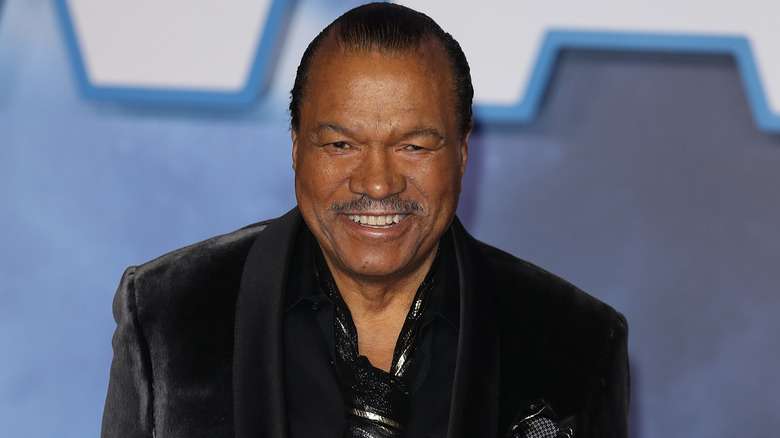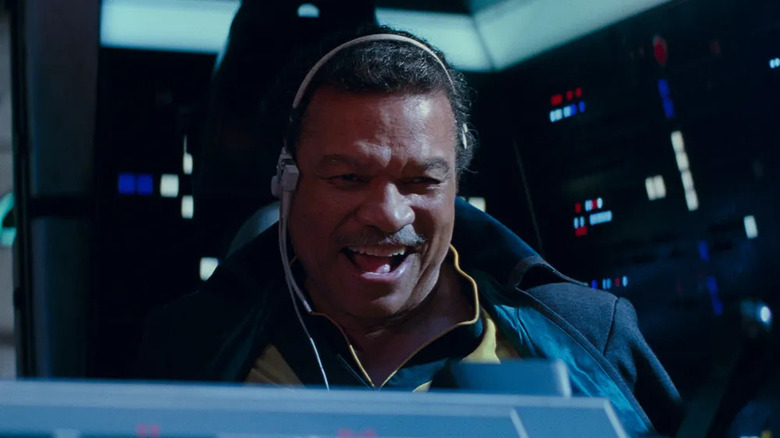Billy Dee Williams' Blackface Comments Spark Controversy & Twitter Isn't Holding Back
Billy Dee Williams has found himself in hot water after making comments on "Club Random with Bill Maher" about how actors should be able to do blackface. The conversation turned to Williams discussing Laurence Olivier donning blackface for 1965's "Othello," one of the more infamous examples of the practice in Hollywood history. Maher points to how people can't do that today, with Williams stating, "Why not? You should do it. If you're an actor, you should do anything you want to do." He then seemingly called out those who get offended by it: "You don't go through life feeling like, 'I'm a victim.' I refuse to go through life saying to the world, 'I'm pissed off.' I'm not gonna be pissed off 24 hours a day."
Blackface is the controversial practice of white actors darkening their skin to play Black characters and usually exhibiting harmful stereotypes. Tina Fey had to apologize for making "30 Rock" episodes barely over a decade ago for featuring blackface, so Williams' comments have opened the proverbial Pandora's box from those online who believe he's out of touch. Many have criticized the actor for his statement, like @Fallenislost on X (formerly Twitter): "I legit cannot think of any good reason for blackface lol if you need a character to be Black just cast a Black actor like duh."
Many are understandably disappointed in the actor, who's known for his ordinarily suave demeanor. X user @Tempiwmf spoke frankly: "[Today] I learned that Billy Dee Williams ain't s***."
The soft canceling of Billy Dee Williams
Blackface isn't something that happened decades ago and then stopped. There's a tragically long list of modern media that utilize it, such as "The Office" needing to remove a controversial scene featuring a white actor with blackface. "The Office," "30 Rock," and many other shows have largely removed these episodes from streaming, but it's still odd numerous creatives didn't see a problem with it at the time. Billy Dee Williams is still okay with it, and many believe the Star Wars actor should probably stay out of this conversation.
X users, including @JohnHPiette, see it as the end of the line for the performer, writing "Welp ... legendary run," alongside a GIF of the Looney Tunes "That's All Folks" title card. A similar attitude was shared by @bumm89176090: "With all due respect [please] Billy Dee sit this one out, sir. [Thanks]." In contrast, other people on social media love what Williams had to say, but looking at their profile pictures, it's clear they belong to a demographic that really shouldn't have an opinion on who should be allowed to use blackface. While Williams would sell his soul to appear in a Star Wars movie again, some people may not welcome him back if he does.
Blackface has a racist history dating back to the 19th century when white performers would portray despicable Black stereotypes. Such minstrel shows influenced the way white audiences viewed the Black population, and such harm can still be felt to this day. Aversion to blackface isn't something caused by modern political correctness, either. A review of Laurence Olivier's "Othello," which Williams praised, was negatively likened to an "American minstrel show" by Bosley Crowther in 1966 in The New York Times.

